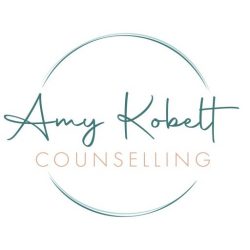Boundaries
I know that I have had a certain recoil reaction to the word “boundaries”. I have seen the flinch when talking about it with clients. I have also witnessed the empowerment that having boundaries and learning about them gives to people. Boundaries have become a buzzword over the last decade. People have felt empowered to stand up for themselves and decline an invitation or request when the ask feels like it goes beyond what they would like to give. People have also felt scared to say what their boundaries are for fear of them being disrespected.

When I talk about boundaries with my clients I often hear the fear that boundaries will push people away from them. This is often the reason we choose to not share our boundaries or enforce them; we are afraid of rejection. The rejection of us and our boundaries, or the fear about what to do if people don’t respect our boundaries. These are real fears, often rooted in real experiences that keep us from sharing our boundaries.
So, what exactly are boundaries? I like to define boundaries as “the space between you and me”. When we don’t have boundaries we can get enmeshed; the line between what is my feeling and my responsibility and what are your feelings and responsibility becomes blurred. Without boundaries you may take on the emotional or physical responsibilities of other people rather than allowing them to care for themselves.
What I have learned in my own work is that not everyone reacts poorly to boundaries. Relationships can actually grow closer together the more authentically we show up as ourselves, which also includes sharing what works for us and what doesn’t work for us. When someone is able to listen to your boundaries and respect them, that builds trust in the relationship. Imagine a boundary you want to set, maybe it sounds like this:
- “I don’t feel comfortable talking about my relationship with you”
- “I don’t have the energy to go out tonight”
- “I’m not ready to have sex, but I’d like to cuddle tonight”
- “I’m not okay with you talking to my kid about that”
Now, imagine if someone said “thanks for telling me, I totally respect that”. What if that was all that happened? How do you think you would feel towards the person after that? Probably a lot safer and closer. Notice even in your body right now as you read this blog post – did you feel a sign of relief? A loosening in your shoulders? Maybe you had a different reaction: squinting your eyes, a tightening in your chest. Perhaps these words don’t sound familiar or trustworthy and you are not sure what to do with them. It may take a while to trust that someone would listen to your boundary and respect it if you have had negative experiences before.
What do I do if I have a boundary I want to set? First, we need to define what my boundary is. Here’s an example:

- I don’t like it when people comment on my food or my weight.
Second, it can be helpful to take time to think about how to best communicate it clearly. Here are some options for how you might communicate that boundary.
- “Please do not comment on how much I am eating or my weight”
- “It makes me uncomfortable when you comment on the food I am eating and the portions I am having. Please do not do that in the future”
- “I’ve realized that talking about portions of food and what me and others are eating makes me feel bad and I’d like us to talk about something else”
Third, we need to decide what we will do if we communicate our boundary and someone chooses to disrespect it? Here are some suggestions on how you can communicate what the consequences may be if someone were to disrespect your boundaries.
- “….if you continue to comment about my weight I will need to leave the conversation.”
- “….if you bring up how much food I am eating I will no longer be able to eat meals with you until I know that my boundary will be respected”
My hope is that as you discover your boundaries you discover ways to safely communicate them and find safe people in your life who respect your boundaries and who you are.


